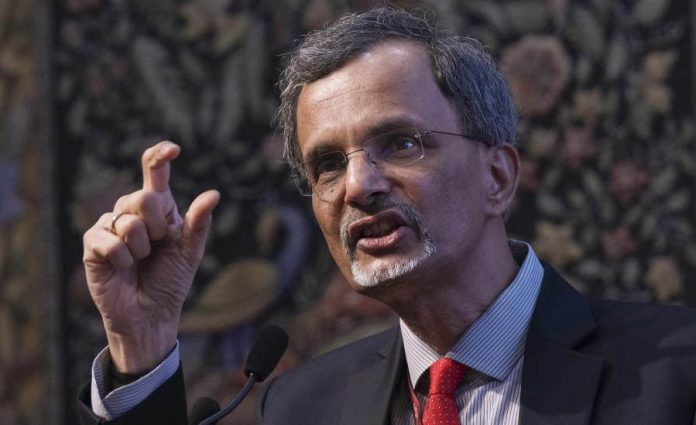NEW DELHI, Dec 12: Chief Economic Advisor (CEA) V Anantha Nageswaran on Thursday underlined the need to be cautious about energy transition and it should be without compromising growth.
“We need to do it carefully so that we do not throw the baby of economic growth out with bath water in the name of managing energy transition and tackling climate change. Without growth there are no resources to invest for climate change management,” he said while speaking at the Global Economic Policy Forum organised by CII here Citing negative impact, he said, Europe is facing an economic doldrum because of a sharp rise in industrial electricity prices partly because of focus on renewal energy and energy transition.
He said that this is not just a political challenge, but also an economic one, affecting not only India but the entire global South.
Assuaging concerns of slowdown, he said, India is on track to achieve 6.5-7 per cent GDP growth for the current fiscal pencilled in Economic Survey.
He, however, said, the uncertain global economic environment is an enduring challenge for India, and there is a need to double down on domestic efforts to navigate the uncertainties.
In this endeavour to improve domestic conditions, Nageswaran also said that creating 8 million jobs every year remains a priority and an important challenge for the government. It is not an easy task owing to the skilling gap, he said.
He also emphasised the importance of strengthening capital formation and expressed optimism that private sector participation is expected to rise in the next five years due to improved balance sheets and profitability.
As per the provisional estimates for 2023-24, the share of private final consumption expenditure in nominal GDP growth was 60.3 per cent followed by gross fixed capital formation making up 30.8 per cent and exports at 21.9 per cent, he said, adding, that the private sector is beginning to deploy capital.
Generating productive employment, addressing the skill gap challenge, tapping into the full potential of the agriculture sector, enhancing India’s manufacturing and MSME growth through deregulation, balancing rural-urban development, continuing support to high-quality capital expenditure, and making ‘Make in India’ synonymous with high quality through innovations, R&D and quality consciousness will be the critical drivers that will sustain growth towards Viksit Bharat by 2047, he said.
He also highlighted the need to address growing concerns about mental health among India’s youth, exacerbated by screen addiction, sedentary lifestyles, and ultra-processed food consumption.
“It is not just a government responsibility, but the responsibility of society and the private sector as well. If India has to leverage the demographic dividend, Indians should not only be physically healthy but also be mentally healthy”, he said.
There is a need to create 8 million jobs in the next 10-20 years which is not a trivial challenge, he said, adding these jobs have to be created with decent living wages. (Agencies)
Trending Now
E-Paper


